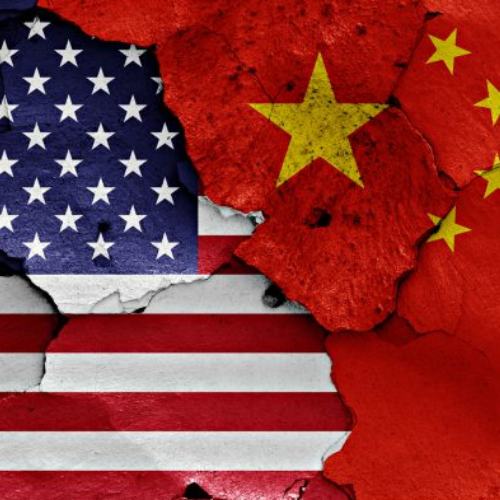Tensions between the United States and China have escalated after Washington added two major Chinese companies to its list of entities connected to the Chinese military. The U.S. Department of Defense (DOD) named tech giant Tencent, known for its popular video game titles and the widely used WeChat messaging app, as well as battery manufacturer CATL, to this list. This action has sparked a strong reaction from Chinese officials, who are accusing the U.S. of trying to suppress Chinese businesses and hold back the country’s development.
According to Chinese officials, the U.S. move is part of a broader attempt to hinder China’s progress. The foreign ministry spokesperson criticized the U.S. for creating so-called “discriminatory lists” that unfairly target Chinese companies. These lists, according to China, are used by the U.S. government to restrict Chinese firms’ ability to do business internationally and harm their reputations.
In a recent press briefing, the Chinese spokesperson called the U.S. actions “unreasonable suppression” and claimed that these actions were hurting China’s efforts to grow its economy and technology sectors. The spokesperson also demanded that the U.S. immediately correct what they described as “wrong practices.”
What the U.S. Action Means for the Tencent, CATL ?
Being added to the U.S. military list does not immediately ban these companies from doing business in the U.S., but it adds pressure on other government agencies to take action, such as investigating the companies and potentially imposing sanctions. It also serves as a warning to American companies, discouraging them from working with businesses on this list, out of concern for damage to their own reputation.
Tencent Hit Hard: Shares Slide After US Adds It to Military Blacklist
The U.S. government’s list, known as the Section 1260H list, is updated every year and now includes a total of 134 Chinese companies, research organizations, and universities. These companies are believed to have some connections to China’s military, whether directly or indirectly.
In the case of Tencent and CATL, both companies have denied having any links with the Chinese military. Tencent, which is also known for developing games like “Honor of Kings” and “PUBG Mobile,” has stated that it has no business relationship with the military and that its operations are entirely separate from any defense-related activities. Likewise, CATL, one of the world’s largest battery manufacturers, denied any connection to the military, claiming the U.S. listing was a mistake.
CATL even went further to say that being placed on this list would not affect their business operations, as they are not a military supplier. Tencent made similar statements, explaining that the listing does not have the same impact as official sanctions or export controls. The company assured its customers and partners that their business would continue as usual.
What the U.S. and China Are Saying
In response to the accusations from China, U.S. officials maintain that the listing of companies like Tencent and CATL is not meant to attack China’s economy, but rather to protect U.S. national security interests. According to the U.S., companies that are connected to the military could potentially be involved in activities that threaten global security. By placing them on this list, the U.S. believes it is safeguarding its own technological advancements and ensuring that sensitive information does not fall into the wrong hands.
China Slams 7 US Military Companies with Sanctions Over Taiwan Support
However, China argues that the U.S. is using the national security argument as a way to block China’s development in high-tech industries. They believe that the U.S. is unfairly labeling Chinese companies as military-linked, even when they insist there is no connection to the military.
This latest exchange is part of the ongoing tension between the two countries. The U.S. has previously imposed similar sanctions on other Chinese firms, citing national security concerns, while China has accused the U.S. of trying to suppress its technological growth and global influence.
In the meantime, both Tencent and CATL are trying to reassure their partners and customers that their businesses are not impacted by the U.S. designation. Despite these assurances, the added pressure from the U.S. government could affect how other countries and companies view their operations, which is a concern for both Chinese companies and the Chinese government.
With both sides standing firm in their positions, the dispute over these companies adds another layer to the broader U.S.-China tensions, which continue to unfold as both nations compete for influence on the world stage.


